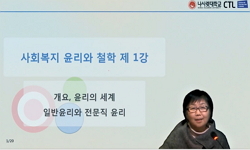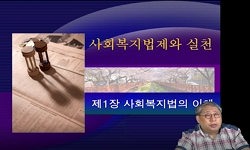본 논문은 신자유주의적인 경제 체제를 살아가고 있는 현대의 한국 교회와 그리스도인들은 어떠한 성서적인 원리들을 그들의 경제 활동에 녹여내야 하는지에 대한 질문에서 시작된다. 그리...
http://chineseinput.net/에서 pinyin(병음)방식으로 중국어를 변환할 수 있습니다.
변환된 중국어를 복사하여 사용하시면 됩니다.
- 中文 을 입력하시려면 zhongwen을 입력하시고 space를누르시면됩니다.
- 北京 을 입력하시려면 beijing을 입력하시고 space를 누르시면 됩니다.
마르틴 루터의 경제관 : 현대적 의의와 사회복지적 재조명 = An Economic View of Martin Luther - Reillumination and Its Significance for Modern Social Welfare
한글로보기https://www.riss.kr/link?id=T12518422
- 저자
-
발행사항
서울 : 한영신학대학교 신학대학원, 2011
-
학위논문사항
학위논문(석사) -- 한영신학대학교 신학대학원 , 신학과 , 2011. 8
-
발행연도
2011
-
작성언어
한국어
- 주제어
-
DDC
230.41 판사항(21)
-
발행국(도시)
서울
-
기타서명
An Economic View of Martin Luther - Reillumination and Its Significance for Modern Social Welfare -
-
형태사항
78p. 26cm
-
일반주기명
한영신학대학교 논문은 저작권에 의해 보호받습니다.
지도교수:남성현
참고문헌: p.73-76 - 소장기관
-
0
상세조회 -
0
다운로드
부가정보
국문 초록 (Abstract)
본 논문은 신자유주의적인 경제 체제를 살아가고 있는 현대의 한국 교회와 그리스도인들은 어떠한 성서적인 원리들을 그들의 경제 활동에 녹여내야 하는지에 대한 질문에서 시작된다. 그리스도인들은 마땅히 속한 사회의 구성원으로서 자신들의 삶을 통해 모든 영역에서 악을 초월하시는 하나님의 능력을 이 세상에 드러내 보여주어야 하기에, 교회는 자본주의 시장 경제를 무비판적으로 따라가기 보다는 그것들이 한편으로 빚어내고 있는 불협화음에 대하여 성서적 경제 정의를 외칠 수 있는 신학적 기반을 가지고 있어야 한다.
특히 신자유주의적 경제 체제는 ‘경제의 효율성’과 ‘시장경쟁력 강화’를 위하여 시장 기능을 확대하고 정부 차원에서의 규제를 축소시키고자 하기 때문에 자본의 불평등한 분배와 양극화를 심화시킬 뿐 아니라 소외된 계층을 위한 복지 정책을 수립하기에 어려운 구조를 가지고 있다.
이에 대하여 본 논문이 제시하고자 하는 답변은 16세기의 독일의 경제적 상황에서 루터가 보여준 경제관이 오늘날의 현대 교회와 그리스도인들에게 적절한 교훈을 제시해 줄 수 있다는 것이다. 왜냐하면 오늘날의 현대 자본주의는 루터가 살았던 15세기말과 16세기 유럽의 경제적 움직임과 연관이 있기 때문이다. 루터는 신항로 개척으로 인해 상업과 무역이 발달하고, 거대자금을 위한 고리대금업이 성행하던 시기의 유럽에서 그와 같은 경제적 변화들이 초래해내는 문제점들을 직접 목격하였으므로 그에 대한 신학적이고 성경적인 비판들을 제시할 수 있었다.
본 논문은 루터 시대의 유럽과 독일 그리고 교회의 경제적 상황들을 분석하고, 그가 경제적 문제들을 바라볼 때 어떠한 사상적인 배경들을 가지고 있었는지 분석하였다. 그것은 다음과 같은 것들로서 첫째, 루터의 경제 인식 원리는 ‘정의’를 근간으로 하는 아리스토텔레스적 전통을 따르고 있다는 것이고, 둘째, 그가 제시하는 그리스도인의 경제적 실천 원리는 예수 그리스도의 산상 수훈에 기반을 둔 것이었으며 셋째, 루터 사상의 저변에 흐르는 ‘두 왕국론’에 입각한 현실 인식이 루터의 이상적인 경제관을 뒷받침해 주고 있는 제도적 장치의 역할을 하고 있다는 것이다.
또한 이와 같은 루터의 경제관은 필연적으로 그의 자선관과 연결되어 당대의 구제 시스템을 정부주도형 사업으로 개혁시킬 수 있는 사상적 원리를 제공하였다.
이와 같은 루터의 경제관은 현대 교회와 그리스도인들이 향유하고 있는 경제 체제에 대하여 다시 한 번 돌아 볼 수 있도록 도전한다. 하나님께서 우리의 모든 재정의 주인 되시기에, 그리스도인들은 좀 더 책임감 있는 경제 활동을 해야 할 뿐 아니라, 가난한 자들을 돌보고, 공동체를 위한 경제 활동을 해야 하는 것이다. 그리스도인들이 추구해야 할 진정한 자유는 ‘신자유주의가 보장하는 자유’를 뛰어 넘어 자신의 것들을 기꺼이 나누어 줄 수 있는 사랑에 근거한 자유여야 하며, 루터의 가르침은 우리를 이와 같은 삶으로 도전하는 것이다.
다국어 초록 (Multilingual Abstract)
This thesis starts with the question of how the modern Korean churches and christians in neoliberal capitalism could integrate the biblical principles to their economic activities. Since christians as members of their society should be able to manifes...
This thesis starts with the question of how the modern Korean churches and christians in neoliberal capitalism could integrate the biblical principles to their economic activities. Since christians as members of their society should be able to manifest the power of God who transcends the evil in every realm through their lives, churches ought to have theological foundation on which they can proclaim the biblical economic justice against the discordances produced from the capitalism instead of following it without due consideration.
The neoliberal capitalism especially focuses on expanding the functions of the market and limiting the governmental restrictions for the efficiency of the economy and enforcement of the market competitiveness. Therefore, not only is it systematically difficult to establish social welfare policy for the neglected, but also it aggravates the polarization and unequal distribution.
This thesis suggests that the economic view of Martin Luther in the 16c could give guidance to the modern churches and christians. Because the modern capitalism is in relation with the economic movement of Europe in the late 15c and 16c. Since Luther witnessed the problems caused by the economy transition in Europe where commerce and trade had developed due to new founded sea routes. And such transition also had made the usury prevail in Europe.
To begin with, this thesis focused on the economic situation of the Europe, of the Germany, of the church in Luther's time and analyzed his ideological backgrounds by which he had seen economic problems. From that, this thesis has concluded that following three thoughts are critical elements which consist of Luther's economic view. First, Luther's understanding of economy is in alignment with that of Aristotle rooted in economic justice for the community. Second, the practical principles he suggested was based on the Sermon on the Mount. Third, 'the two kingdoms theory' which underlying Luther's overall thoughts supports his ideal economic view as an institutional device.
In addition, such economic view is closely connected with his view of charity, which provided German society with an ideological principle to reform its poor-relief system.
For this reason, the economic view of Luther could challenge modern churches and christians to ponder over their economic activity to be tuned with biblical principle.
목차 (Table of Contents)
- 목 차
- Ⅰ. 서론 1
- 1. 문제 제기 및 연구 목적 1
- 목 차
- Ⅰ. 서론 1
- 1. 문제 제기 및 연구 목적 1
- 2. 연구 범위와 방법 6
- Ⅱ. 루터 시대의 경제적 상황 9
- 1. 유럽의 경제적 상황 9
- 1) 중세 유럽의 경제 구조 10
- 2) 자본주의 시대의 출현 13
- 2. 독일의 경제적 상황 14
- 3. 교회의 경제적 상황 17
- Ⅲ. 경제 문제에 대한 루터의 사상적 배경 19
- 1. 아리스토텔레스적 경제관: 인식 원리 20
- 2. 산상 수훈: 실천 원리 23
- 3. 두 왕국론: 제도적 장치 26
- Ⅳ. 루터의 경제관 31
- 1. 상업과 독점에 대하여 32
- 2. 고리대금에 대하여 39
- 3. 토지를 매개로 한 이자 계약에 대하여 45
- Ⅴ. 루터의 경제관과 사회복지 54
- 1. 자선에 대하여 55
- 1) 중세적 이해 55
- 2) 루터의 이해 58
- 2. 루터의 자선 개혁 61
- 1) 국가 주도형의 사회복지 사업 62
- 2) 사회 복지 사업의 제도화 64
- Ⅵ. 결론 68
- 참고문헌 73
- ABSTRACT 77












